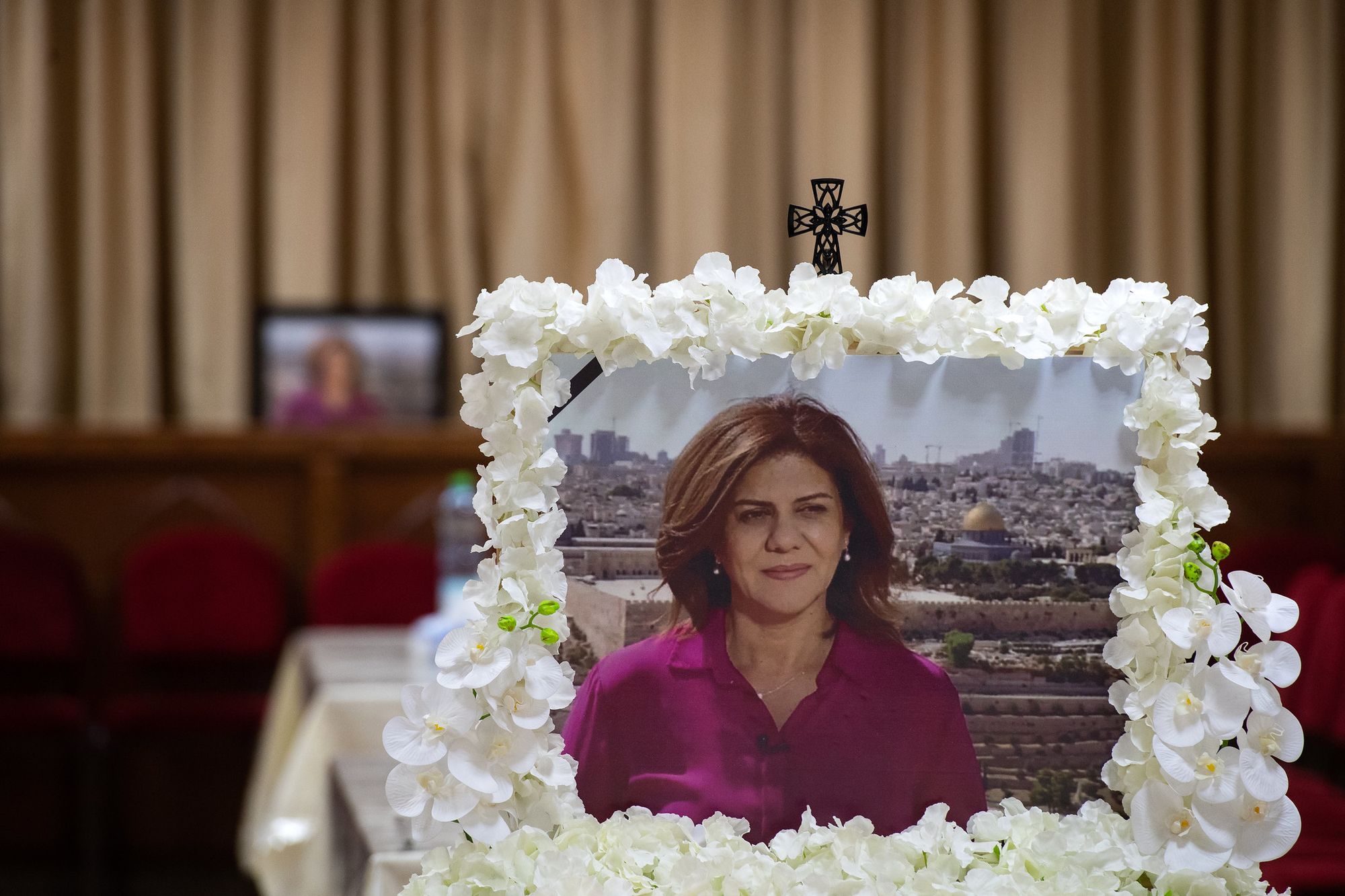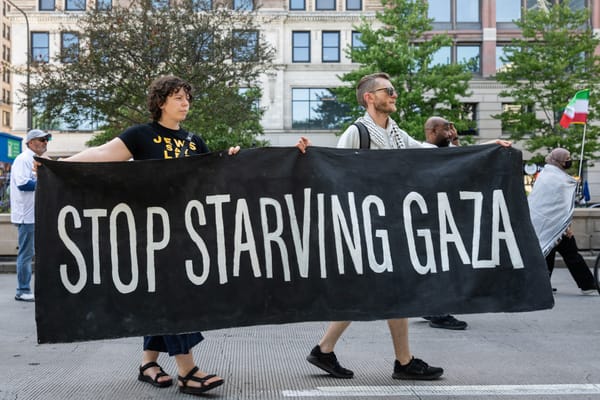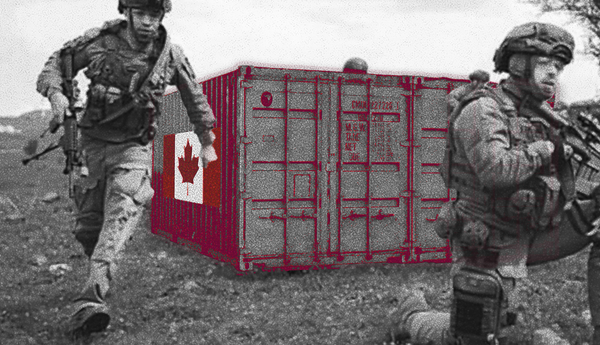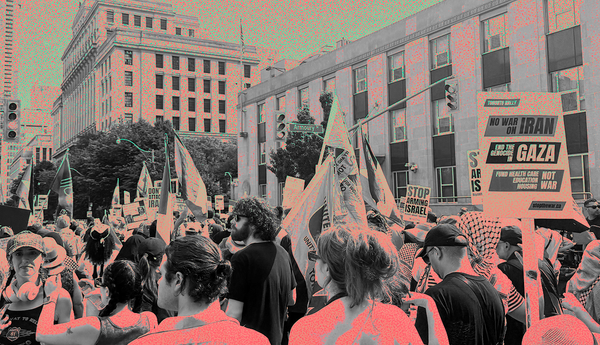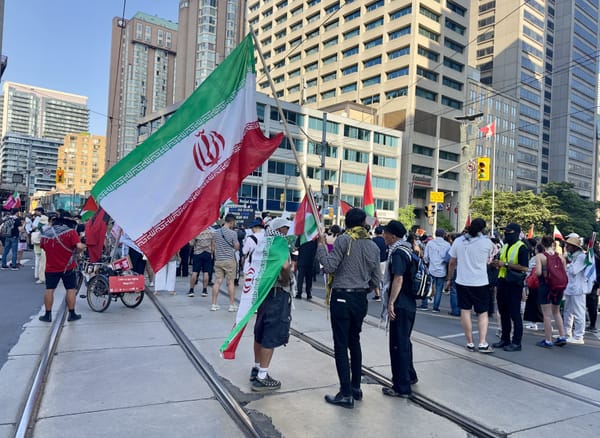It has been nearly three months since Israeli forces shot and killed Palestinian journalist Shireen Abu Akleh. Despite Al Jazeera (AJ) condemning the killing as a deliberate assassination on the day it happened, and an ever-growing list of investigations confirming Israel’s responsibility since, Canada has doggedly refused to critique the apartheid state or support calls for an independent probe into the event.
Investigations by the New York Times, CNN and the Washington Post have all shown that the bullet that killed Abu Akleh on May 11 was fired from a position held by Israeli forces in Jenin, where the AJ correspondent was covering a military raid. In June, the United Nations arrived at a similar conclusion, and further debunked the Israeli government’s lie that Palestinian gunfire may have caused her death, stating, “We have found no information suggesting that there was activity by armed Palestinians in the immediate vicinity of the journalists.” In July, even the U.S. State Department admitted — after examining the bullet that killed Abu Akleh — that the Israeli military was “likely responsible for the death.”
The evidence of Israel’s responsibility is overwhelming, but the Canadian government has refused to take any action beyond issuing token statements that even failed to name Israel as the perpetrator and excluded specific calls in the days following her death for an independent investigation to be conducted by an international body.
In May, the Palestinian Authority asked the International Criminal Court (ICC) to add the killing of Abu Akleh to their ongoing investigation of Israeli war crimes. At the time, I contacted Foreign Affairs Minister Mélanie Joly asking if Canada would support or at least provide comment on the request. Joly’s office told me that the minister had “no further comment” beyond her initial statements following Abu Akleh’s death, which failed to condemn Israel or call for an independent investigation. (Canada has in the past opposed Palestine’s right to bring cases before the ICC on the basis that it “does not recognize a Palestinian state and therefore does not recognize its accession to international treaties.”)
Documents I obtained through access to information requests shed more light on Canada’s embarrassing response to the killing. In the immediate aftermath, senior Global Affairs Canada (GAC) staff received a flash report from Canada’s diplomatic mission in Ramallah. The report pointed out that Israel not only has a long track record of attacking journalists, but also of failing to properly investigate its own armed forces when they do so.
The report noted: “There have been several instances of Palestinian journalists being injured while covering protests or [Israeli] operations in the West Bank, Gaza and East Jerusalem in recent years.” It cited the fact that an AJ reporter’s hand was broken when she was detained by Israeli police in Sheikh Jarrah in June 2021, and that an Associated Press camera operator was shot in the ankle while covering protests in Gaza in 2018. Like Abu Akleh when Israeli forces shot her, the injured journalists cited in the diplomatic office’s report “were clearly identified as ‘press’ at the time of the incidents.”
(According to the organization Reporters Without Borders, at least 144 Palestinian journalists have been hit by live ammunition, rubber bullets, stun grenades and tear gas fired by Israeli forces since the Great March of Return protests began in 2018.)
The next day, GAC staff received a security report from the Canadian Embassy in Tel Aviv, which pointed out that Israel’s claim that a Palestinian shooter may have been responsible for Abu Akleh’s death had been “largely debunked.”
Despite these warnings from Canadian diplomatic staff, and clear knowledge that Israel’s initial story about how Abu Akleh died was a lie, Canada has to this day refused to issue even a nominal condemnation.
It gets worse. In the immediate aftermath of Abu Akleh’s death, Canadian officials waited to see what their counterparts in the United States and United Kingdom said before issuing their own token statements.
The May 11 report from Canada’s representative in Ramallah stated that Canadian diplomatic offices in Israel and Palestine had both published tweets expressing shock at the killing “in line with likeminded [sic],” referring to tweets from U.K. and U.S. representatives. Approximately one hour after these tweets were posted, the Canadian office issued a statement parroting them, stating that they were “shocked and saddened” by Abu Akleh’s death and calling for a “thorough & transparent investigation,” but not an independent one.
Even more disgracefully, Canadian officials also closely monitored responses from allied representatives before commenting on the Israeli security forces’ barbaric assault on mourners carrying Abu Akleh’s funeral casket. Senior GAC staff reviewed drafts of proposed statements by Lisa Stadelbauer and Robin Wettlaufer, Canada’s lead diplomats in Israel and Palestine respectively, alongside “[like-minded] reactions” from Dutch, French, Swedish, and European Union officials, some of whom had issued condemnations.
After GAC staff reviewed the statements, the Canadian diplomats were given the greenlight to publicly condemn the attack. Anyone with a shred of moral integrity wouldn’t have waited to see what allied countries said about such an appalling assault before speaking out. Joly also took four days to comment on the funeral attack, and avoided direct condemnation of the perpetrators.
While Canada’s cowardly response to Israel’s killing of Abu Akleh is an embarrassing disgrace, it’s not surprising. The Israeli apartheid regime regularly commits abuses against Palestinians with impunity. And despite occasionally expressing “grave concerns” over “violence” in the region, Canada continues to export military goods to Israel. Meanwhile, expansions to the Canada-Israel Free Trade Agreement over the past few years have effectively provided subsidies to Israeli producers based in illegal settlements.
And in case anyone thought Canada’s business-as-usual approach to dealing with the apartheid state may be in doubt after such a brazen killing of a globally respected journalist, Canadian ministers led trade missions at the Farnborough war show in the U.K. this month, actively promoting companies that arm Israel and other murderous regimes, such as Saudi Arabia.
When I asked Minister of Innovation, Science and Industry François-Philippe Champagne at the show if he was concerned about boosting trade with these states, he claimed that protecting human rights is a top priority for the Trudeau government. When pressed further about the fact that both Israel and Saudi Arabia have killed journalists, Champagne ended the interview.
The message Canada sends through such trade missions and its ongoing refusal to condemn Israel for killing Abu Akleh is that journalists’ lives don’t matter if they challenge regimes that serve Canada’s geopolitical and trade interests, or, more broadly, the broader interests of alliances led by the U.S.
This week, Abu Akleh’s family met with U.S. Secretary of State Antony Blinken (Abu Akleh was an American citizen) to renew their demands for an independent investigation into Israel’s actions, and accountability. It’s a safe bet that Canada will continue to silently watch how this demand for justice unfolds from the sidelines, not daring to pressure the U.S. to act.


